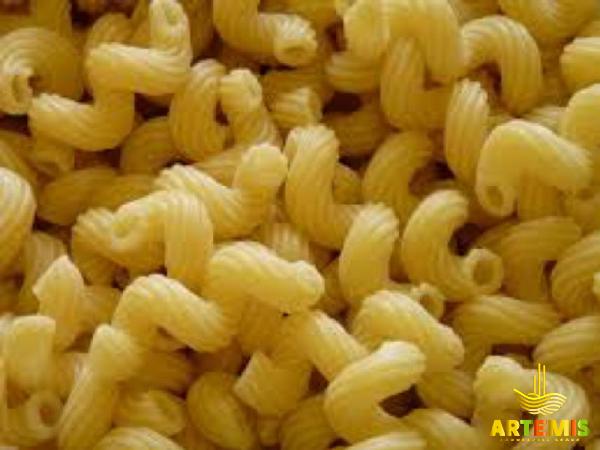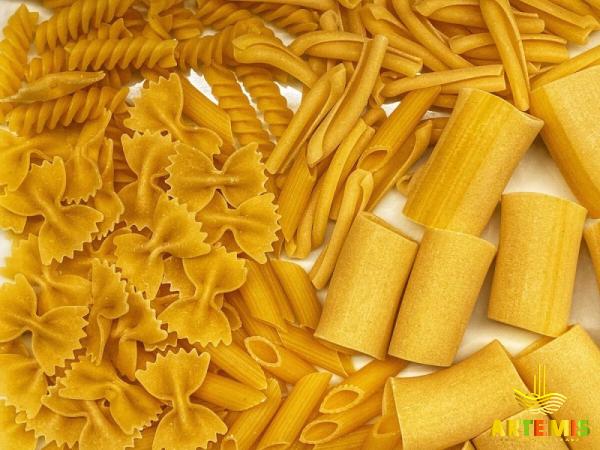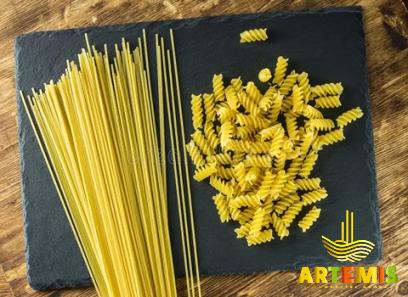In recent years, there has been a growing preference for organic products in the food industry, with an increasing number of consumers seeking out healthier and more sustainable options. One area where this trend is particularly evident is in the market for pasta. While regular pasta has long been a staple in households around the world, organic pasta is gaining popularity for its perceived health benefits and environmental consciousness. In this article, we will delve into the differences between organic pasta and regular pasta, and explore why it matters for both consumers and producers. 1. Ingredients and Production: Organic pasta is made from organically grown wheat, where no chemical pesticides or synthetic fertilizers are used during cultivation. This helps to eliminate the risk of harmful residues in the final product.
.
 Additionally, organic pasta is often processed using traditional methods, maintaining the integrity and nutritional value of the grain. On the other hand, regular pasta may contain wheat that has been treated with synthetic chemicals, including pesticides and fertilizers. This can lead to potential health risks for consumers. 2. Nutritional Value: Organic pasta is often praised for its superior nutritional composition compared to regular pasta. It is typically higher in essential nutrients such as vitamins, minerals, and antioxidants, due to the absence of chemical additives and the use of whole grains. Regular pasta, on the other hand, may have lower nutrient content due to the refining process and the potential loss of valuable components. 3. Health Benefits: Because organic pasta is made from whole grains, it is an excellent source of dietary fiber, promoting digestive health and aiding in weight management.
Additionally, organic pasta is often processed using traditional methods, maintaining the integrity and nutritional value of the grain. On the other hand, regular pasta may contain wheat that has been treated with synthetic chemicals, including pesticides and fertilizers. This can lead to potential health risks for consumers. 2. Nutritional Value: Organic pasta is often praised for its superior nutritional composition compared to regular pasta. It is typically higher in essential nutrients such as vitamins, minerals, and antioxidants, due to the absence of chemical additives and the use of whole grains. Regular pasta, on the other hand, may have lower nutrient content due to the refining process and the potential loss of valuable components. 3. Health Benefits: Because organic pasta is made from whole grains, it is an excellent source of dietary fiber, promoting digestive health and aiding in weight management.
..
 It also tends to have a lower glycemic index, meaning it causes a slower and more sustained rise in blood sugar levels, making it beneficial for individuals with diabetes or those seeking to control their blood sugar levels. Regular pasta, though not entirely lacking in nutritional value, may have a less significant impact on overall health. 4. Environmental Impact: One of the key reasons consumers opt for organic pasta is its positive impact on the environment. Organic cultivation practices help to protect soil health, preserve biodiversity, and reduce water pollution. By choosing organic alternatives, consumers contribute to sustainable agricultural methods and support farmers who prioritize environmentally friendly practices.
It also tends to have a lower glycemic index, meaning it causes a slower and more sustained rise in blood sugar levels, making it beneficial for individuals with diabetes or those seeking to control their blood sugar levels. Regular pasta, though not entirely lacking in nutritional value, may have a less significant impact on overall health. 4. Environmental Impact: One of the key reasons consumers opt for organic pasta is its positive impact on the environment. Organic cultivation practices help to protect soil health, preserve biodiversity, and reduce water pollution. By choosing organic alternatives, consumers contribute to sustainable agricultural methods and support farmers who prioritize environmentally friendly practices.
…
 Regular pasta, on the other hand, often relies on intensive farming methods, which can have adverse effects on soil quality, water resources, and biodiversity. Conclusion: As individuals become more conscious about the food they consume and its impact on their health and the environment, the demand for organic pasta continues to rise. With its superior nutritional composition, reduced exposure to harmful chemicals, and positive environmental contributions, organic pasta is an appealing choice for health-conscious consumers. However, it’s important to note that regular pasta still provides a convenient and affordable option for many individuals. Ultimately, the choice between organic and regular pasta comes down to individual preferences, dietary requirements, and budget considerations.
Regular pasta, on the other hand, often relies on intensive farming methods, which can have adverse effects on soil quality, water resources, and biodiversity. Conclusion: As individuals become more conscious about the food they consume and its impact on their health and the environment, the demand for organic pasta continues to rise. With its superior nutritional composition, reduced exposure to harmful chemicals, and positive environmental contributions, organic pasta is an appealing choice for health-conscious consumers. However, it’s important to note that regular pasta still provides a convenient and affordable option for many individuals. Ultimately, the choice between organic and regular pasta comes down to individual preferences, dietary requirements, and budget considerations.










Your comment submitted.